Jeep Avenger VS VW ID.7 – Specs, Efficiency & Price Comparison
Which model is the better choice – the Jeep Avenger or the VW ID.7? We compare performance (156 HP vs 340 HP), boot capacity (380 L vs 532 L), efficiency (15.50 kWh4.90 L vs 13.60 kWh), and of course, the price (21900 £ vs 46300 £).
Find out now which car fits your needs better!
The Jeep Avenger (SUV) is powered by a Electric, Petrol or Petrol MHEV engine and comes with a Automatic or Manuel transmission. In comparison, the VW ID.7 (Hatchback) features a Electric engine and a Automatic gearbox.
When it comes to boot capacity, the Jeep Avenger offers 380 L, while the VW ID.7 provides 532 L – depending on what matters most to you. If you’re looking for more power, you’ll need to decide whether the 156 HP of the Jeep Avenger or the 340 HP of the VW ID.7 suits your needs better.
There are also differences in efficiency: 15.50 kWh4.90 L vs 13.60 kWh. In terms of price, the Jeep Avenger starts at 21900 £, while the VW ID.7 is available from 46300 £.
Compare all the key specs now and find out which model fits your lifestyle best!
Jeep Avenger
The Jeep Avenger is a compact SUV that brings a blend of rugged design and modern technology, making it ideal for both urban and off-road adventures. Its robust build and distinctive styling capture Jeep's iconic spirit while offering a comfortable and refined driving experience. With advanced safety features and a versatile interior, the Avenger caters to a wide range of drivers looking for practicality and excitement.
details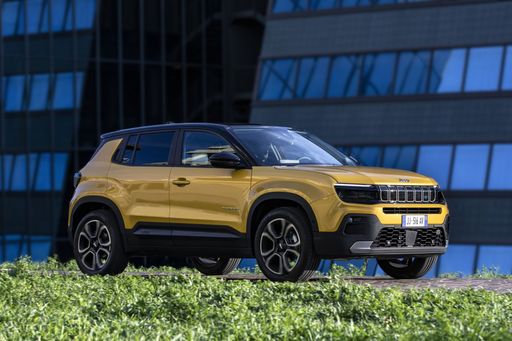 @ Stellantis
@ Stellantis
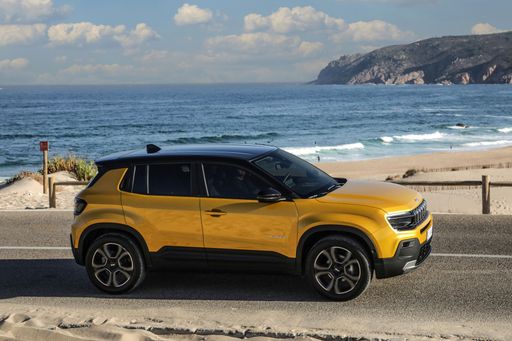 @ Stellantis
@ Stellantis
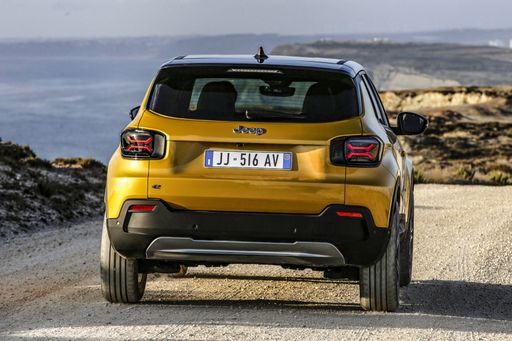 @ Stellantis
@ Stellantis
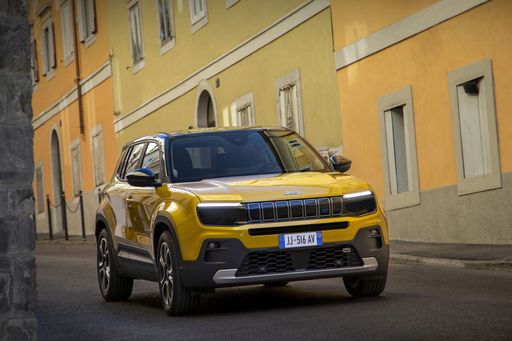 @ Stellantis
@ Stellantis
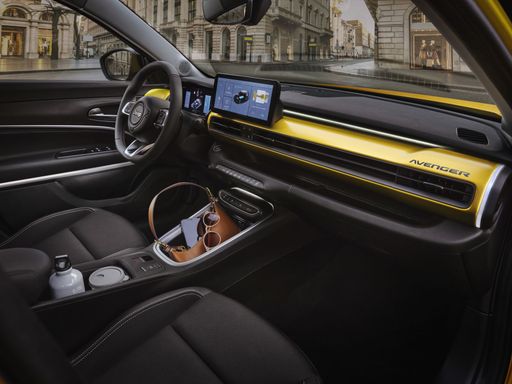 @ Stellantis
@ Stellantis
VW ID.7
The VW ID.7 represents a significant step forward in Volkswagen's electric vehicle lineup, offering an elegant design combined with advanced technology features. This electric saloon showcases a sleek aerodynamic profile, prioritising both performance and efficiency. Inside, drivers will appreciate the spacious and modern cabin, equipped with intuitive controls and connectivity features for a seamless driving experience.
details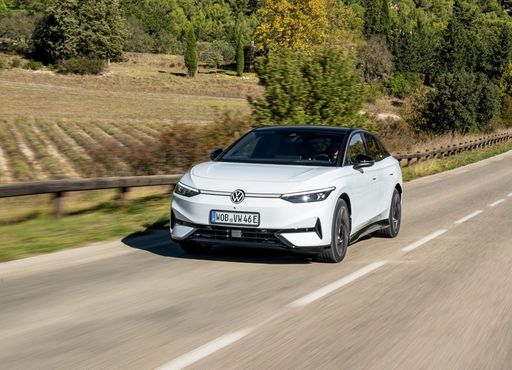 @ Volkswagen.de
@ Volkswagen.de
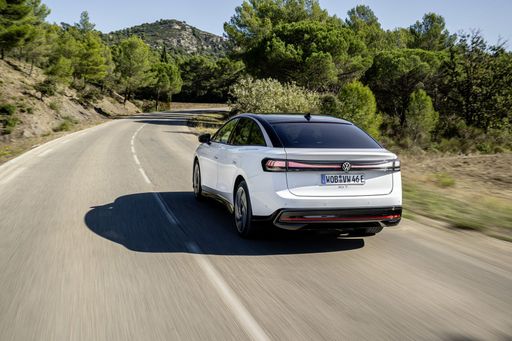 @ Volkswagen.de
@ Volkswagen.de
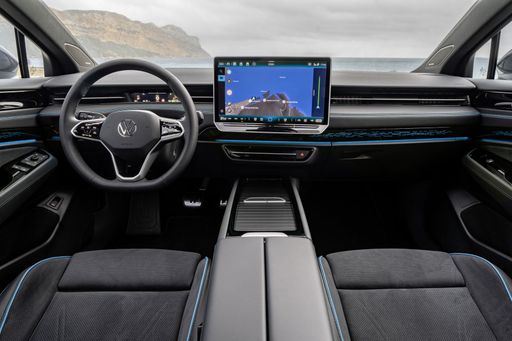 @ Volkswagen.de
@ Volkswagen.de
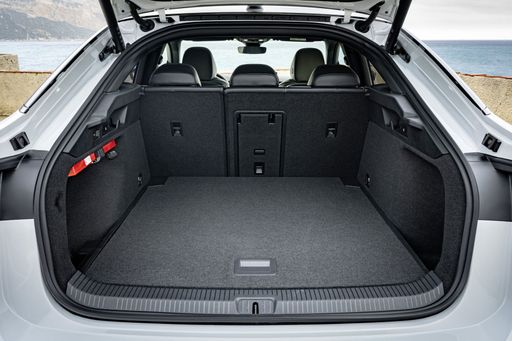 @ Volkswagen.de
@ Volkswagen.de

|

|
|
|
|
Costs and Consumption |
|
|---|---|
|
Price
21900 - 36900 £
|
Price
46300 - 54100 £
|
|
Consumption L/100km
4.9 - 5.7 L
|
Consumption L/100km
-
|
|
Consumption kWh/100km
15.50 kWh
|
Consumption kWh/100km
13.6 - 16.2 kWh
|
|
Electric Range
400 km
|
Electric Range
595 - 709 km
|
|
Battery Capacity
51 kWh
|
Battery Capacity
77 - 86 kWh
|
|
co2
0 - 129 g/km
|
co2
0 g/km
|
|
Fuel tank capacity
44 L
|
Fuel tank capacity
-
|
Dimensions and Body |
|
|---|---|
|
Body Type
SUV
|
Body Type
Hatchback
|
|
Seats
5
|
Seats
5
|
|
Doors
5
|
Doors
5
|
|
Curb weight
1180 - 1520 kg
|
Curb weight
2184 - 2328 kg
|
|
Trunk capacity
325 - 380 L
|
Trunk capacity
532 L
|
|
Length
4084 - 4088 mm
|
Length
4961 mm
|
|
Width
1776 mm
|
Width
1862 mm
|
|
Height
1527 - 1541 mm
|
Height
1535 - 1536 mm
|
|
Payload
494 - 502 kg
|
Payload
456 - 462 kg
|
Engine and Performance |
|
|---|---|
|
Engine Type
Electric, Petrol, Petrol MHEV
|
Engine Type
Electric
|
|
Transmission
Automatic, Manuel
|
Transmission
Automatic
|
|
Transmission Detail
Schaltgetriebe, Automat. Schaltgetriebe (Doppelkupplung)
|
Transmission Detail
-
|
|
Drive Type
Front-Wheel Drive, All-Wheel Drive
|
Drive Type
Rear-Wheel Drive, All-Wheel Drive
|
|
Power HP
100 - 156 HP
|
Power HP
286 - 340 HP
|
|
Acceleration 0-100km/h
9 - 10.6 s
|
Acceleration 0-100km/h
5.4 - 6.6 s
|
|
Max Speed
150 - 194 km/h
|
Max Speed
180 km/h
|
|
Torque
205 - 260 Nm
|
Torque
545 - 679 Nm
|
|
Number of Cylinders
3
|
Number of Cylinders
-
|
|
Power kW
74 - 115 kW
|
Power kW
210 - 250 kW
|
|
Engine capacity
1199 cm3
|
Engine capacity
-
|
General |
|
|---|---|
|
Model Year
2023 - 2025
|
Model Year
2023 - 2024
|
|
CO2 Efficiency Class
A, D, C
|
CO2 Efficiency Class
A
|
|
Brand
Jeep
|
Brand
VW
|
Jeep Avenger
Unveiling the Jeep Avenger: A New Era of Innovation
The Jeep Avenger marks a significant milestone in automotive evolution, blending ruggedness with modern-day advancements. Established within the SUV category, the Avenger offers an eclectic mix of powertrains, including electric and hybrid options, catering to the diverse requirements of the modern motorist.
Powertrain Options: Efficiency Meets Performance
The Jeep Avenger presents multiple powertrain configurations, each designed to harmonise performance with efficiency. The electric version boasts a formidable 156 PS and a battery capacity of 51 kWh, enabling a remarkable 400 km of electric range. This places it at the forefront of environmentally friendly travel with a consumption of merely 15.4 kWh/100km.
Additionally, for those favouring classic combustion engines, the 1.2 e-Hybrid and the purely petrol 1.2 GSE T3 offer 100 PS and incorporate innovative mild-hybrid technology to enhance fuel efficiency while maintaining a spirited driving experience.
Advanced Engineering: Technology and Design
At the heart of the Jeep Avenger lies a well-engineered chassis, tailored for both agility and comfort. Measuring 4084 mm in length, 1776 mm in width, and up to 1534 mm in height, the Avenger ensures ample space within a compact footprint, ideal for urban manoeuvrability.
The vehicle supports its robust engineering with meticulous design details, from its substantial boot capacity of up to 380 litres to its five-door configuration, seamlessly blending functionality with aesthetic appeal.
Driving Dynamics and Performance
Front-wheel drive ensures that the Avenger's power is perfectly harnessed for both city streets and off-road trails. The vehicle's acceleration capabilities vary between 9 and 10.9 seconds from 0-100 km/h, a testament to its spirited performance ethos. With a maximum speed ranging up to 184 km/h, the Avenger is built to deliver thrilling drives.
Sustainability at the Forefront
As a reflection of Jeep's commitment to sustainability, the Avenger achieves commendable CO2 efficiency ratings spanning classes A to D. The electric model stands out with zero emissions, while hybrid options offer competitive CO2 figures, appealing to eco-conscious drivers.
Pricing and Trim Levels
The Jeep Avenger is strategically priced between 25,000 and 43,500 €, ensuring accessibility for a broad range of customers. With available trim levels such as Longitude, Altitude, and Summit, prospective buyers can tailor their vehicles to suit individual preferences, choosing from different feature sets and functionalities.
Conclusion: The Jeep Avenger's Promise
The Jeep Avenger is not just a new vehicle; it embodies a shift towards innovative, efficient, and dynamic motoring. By merging advanced technology with Jeep's legendary prowess, the Avenger is poised to redefine expectations within the SUV sector, offering both cutting-edge performance and unyielding reliability.
VW ID.7
Introducing the VW ID.7: A Game-Changer in the Electric Car Market
The VW ID.7 represents Volkswagen's commitment to innovation and sustainability in the automotive market. This all-electric vehicle stands out not only for its sleek design but also for its impressive array of technological advancements. In this article, we delve into the technical specifications and innovations that make the ID.7 a remarkable addition to Volkswagen's electric vehicle lineup.
Power and Performance
Under the bonnet, the VW ID.7 is powered by a range of electric motors, offering horsepower between 286 and 340 PS. This provides the perfect blend of power and efficiency, making it an ideal choice for both city driving and long-distance journeys. With a top speed of 180 km/h and a lightning-fast acceleration from 0 to 100 km/h in just 5.4 seconds, the ID.7 doesn’t compromise on performance.
Impressive Range and Efficiency
The VW ID.7 redefines what it means to travel efficiently. Depending on the model, the ID.7 offers an electric range between 595 and 709 km on a single charge, setting new benchmarks for the industry. With energy consumption as low as 13.6 kWh per 100 km, it is one of the most energy-efficient vehicles in its class, making it both environmentally friendly and cost-effective for everyday use. The ID.7 boasts a CO2 efficiency class of A, reflecting its zero-emission status.
Advanced Technology and Safety Features
Volkswagen has equipped the ID.7 with cutting-edge technology designed to enhance the driving experience. The car features advanced driver assistance systems, including adaptive cruise control and lane-keeping assistance. Moreover, its infotainment system is state-of-the-art, offering seamless connectivity and a user-friendly interface. Safety features are also top-notch, ensuring peace of mind for drivers and passengers alike.
Design and Comfort
The ID.7's design is both futuristic and practical. Its streamlined body provides a stylish exterior, while the interior is spacious and comfortable, accommodating up to five passengers effortlessly. With a generous boot capacity of 532 litres, there is plenty of storage for all your needs. The ID.7’s dimensions, measuring 4961 mm in length and 1862 mm in width, make it a substantial vehicle that commands attention on the road.
Efficient Price Point
Despite its high-tech features and impressive performance, the VW ID.7 maintains a competitive price range, starting from €53,995. This makes it accessible to a wide range of customers seeking an eco-friendly vehicle without breaking the bank. Additionally, with monthly costs ranging between €1,197 and €1,372, it's a practical choice for those considering long-term electric vehicle ownership.
Conclusion
In conclusion, the VW ID.7 is a testament to innovation in the electric vehicle sector. Its combination of power, range, and technology sets a new standard for what drivers can expect from an electric car. As Volkswagen continues to pave the way for electric mobility, the ID.7 stands as a beacon of what's possible when cutting-edge technology meets sustainable driving practices.
The prices and data displayed are estimates based on German list prices and may vary by country. This information is not legally binding.
